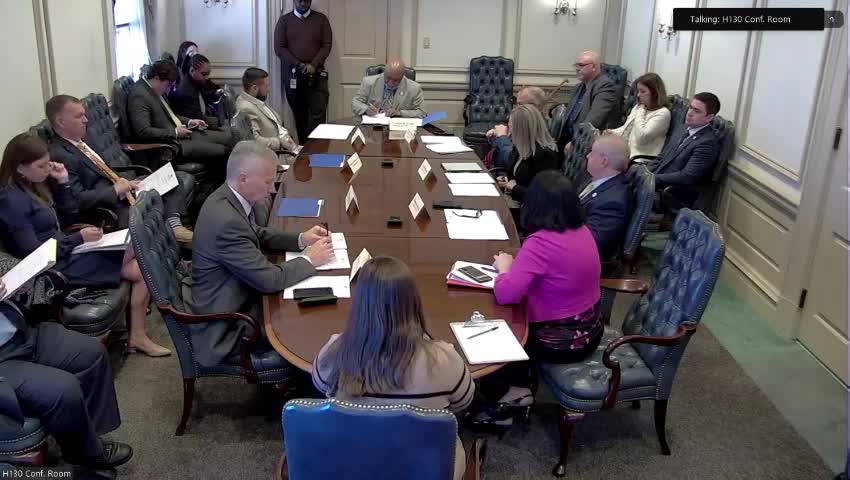Committee advances HB 67 to cap towing fees, require clearer signage and access to personal property
Get AI-powered insights, summaries, and transcripts
Subscribe
Summary
The House Public Safety and Homeland Security Committee released House Bill 67 after testimony from towing industry representatives, consumer advocates and residents. The bill sets a $250 cap on towing fees, a $50 daily storage cap, mandatory public display of rates and rules for returning personal belongings.
The House Public Safety and Homeland Security Committee voted to release House Bill 67, a measure that would impose maximum towing and storage fees, require tow companies to display rates, and mandate access procedures for owners seeking personal property from towed vehicles.
Vice Chair Brzezinski sponsored the bill, which the transcript records as carrying several consumer-protection provisions negotiated with the Delaware Towing Association, AAA and the Department of Justice. Key provisions described on the record include a maximum towing fee of $250, a daily storage rate cap of $50, a drop fee no greater than 50% of the tow fee when an owner returns before removal, and a requirement that storage facilities be accessible to the public from 8 a.m. to 6 p.m. five days a week. The draft also allows reasonable after-hours accommodations to retrieve vehicles or personal belongings and permits a $50 after-hours access fee for retrieving personal items. Tow operators must display their rates publicly and accept credit cards or provide an on-site ATM.
Representatives and witnesses framed the bill as addressing "predatory towing." Michael Zaretta of the Delaware Towing Association and Gina Tidwell of AAA both testified in support; Zaretta said the $250 number aligns with Delaware State Police contracts and that the towing association worked with committee staff to reach the current language. Miriam Dade of Tide Shift Justice Project and other consumer advocates told the committee that losing access to a vehicle can carry severe personal consequences and that the bill's transparency and access provisions protect residents.
Some committee members raised objections. Representative Mark said he remained uncomfortable mandating business hours for private companies and warned against a slippery slope of regulating operating hours across industries. Representative Deere and Representative Morrison questioned rate-setting and said they were reluctant to impose maximum prices on private businesses, even as other members cited predatory actors in the towing industry as justification for limits.
Public comment included a mix of industry and consumer voices. Michael Zaretta (Delaware Towing Association) said the association supports the bill and is reorganizing to provide statewide representation; Ken Grant, a Newark resident, urged passage and described predatory towing practices; Doug Fitzgerald (Enterprise) and Christie Iannielli also supported the effort; Gina Tidwell (AAA) and Miriam Dade (Tide Shift Justice Project) urged the committee to release the bill, describing it as aligning with AAA standards and protecting motorists' ability to retrieve personal property.
A member moved to release the bill; the roll-call in the transcript shows Chair Cook (yes), Representative Morris (no), Representative Ortega (yes), Vice Chair Brzezinski (yes), Representative Romer (yes), Representative Wilson Anton (yes) and Representative Ewing (no). The chair announced the motion carried and HB 67 will be reported out of committee for further consideration.
The draft removes an insurance requirement that the Department of Insurance said was not available in the state, narrows prior caps that had totaled $500, and includes consumer provisions intended to prevent tow operators from using towing and storage fees as long-term parking revenue. The transcript records several committee members asking for data—such as the percentage of vehicles redeemed within certain timeframes—but staff and witnesses did not provide that breakdown during the hearing.
